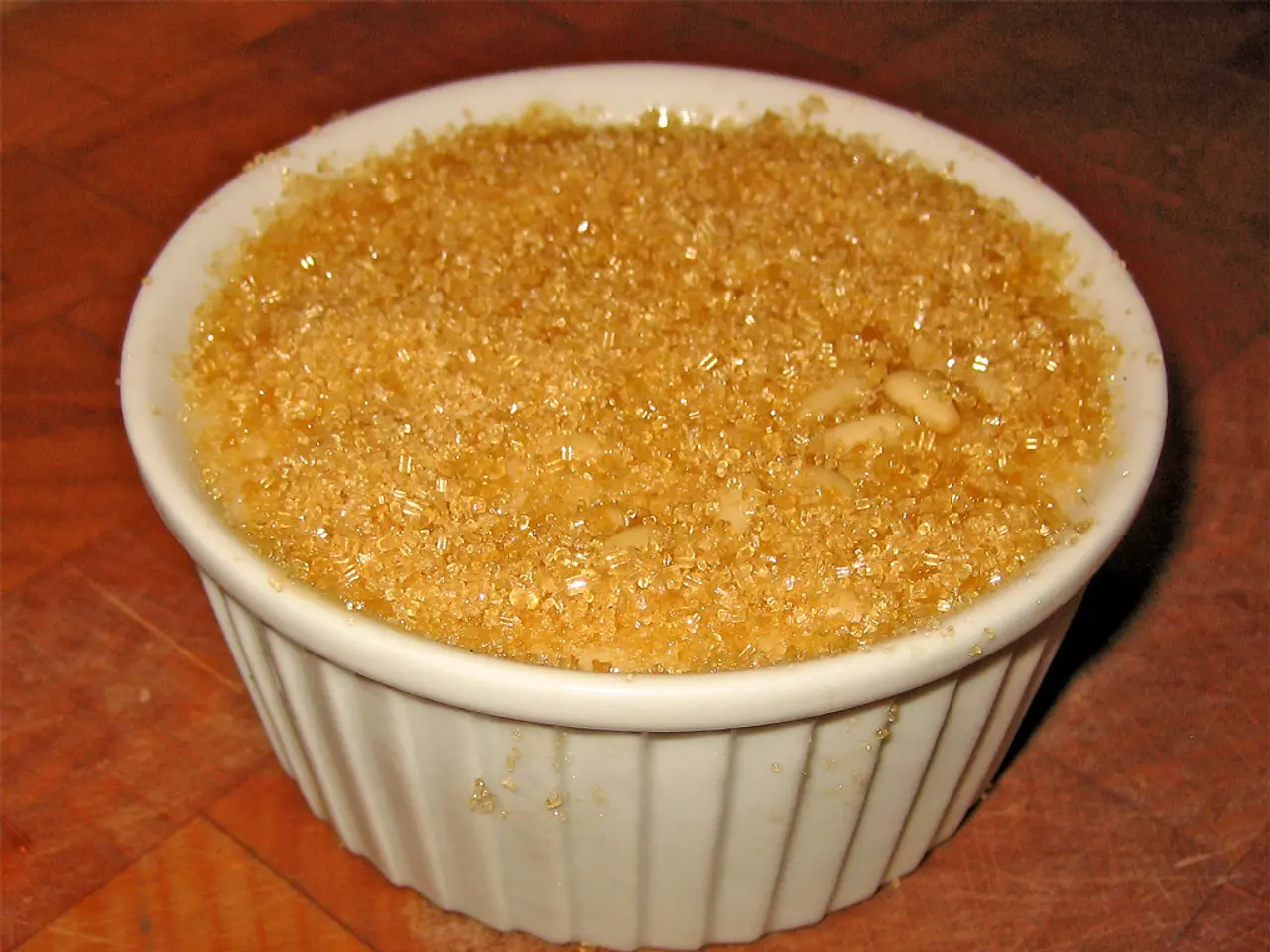Twelve treats ideal for managing ulcerative colitis
Living with Ulcerative Colitis (UC), a type of inflammatory bowel disease (IBD), can make choosing the right foods a challenge. However, there are several snack options that focus on low-residue, easy-to-digest foods that minimize gut irritation while supporting gut health and reducing inflammation.
Easy-to-Digest Snacks for UC
- Peanut Butter Toast with Banana Slices: A simple yet nutritious snack, peanut butter toast on white or sourdough bread topped with banana slices and a sprinkle of cinnamon offers low-residue carbohydrates, smooth healthy fats, and anti-inflammatory spices that are easier to tolerate during UC.
- Soft Fruits: Fruits like bananas are easy to digest and provide soluble fiber beneficial for gut bacteria. Berries, such as blueberries and strawberries, are antioxidant-rich snacks that support gut health, ideally peeled or cooked during flare-ups.
- Smooth Nut Butters: Choosing smooth nut butters over chunky varieties can help reduce irritation.
- Lean Protein Snacks: Canned tuna with mayonnaise, if tolerated, provides anti-inflammatory omega-3s.
- Refined Crackers: Pairing lean proteins or tolerated vegetables (such as peeled cucumber) with refined cracker options like saltines offers bland, gut-friendly carbs.
- Nuts in Moderation: Nuts, such as almonds and walnuts, are nutrient-dense but should be consumed in moderation, balancing fiber benefits with tolerance to insoluble fiber.
- Plain Yogurt: Some people with UC find plain yogurt to be well-tolerated during flares, and it may support gut health.
Foods to Avoid During Active Symptoms
During active symptoms, it's crucial to avoid high-fiber insoluble foods like raw kale, apple skins, and cruciferous vegetables, as they can aggravate UC. Instead, favor soluble fiber foods like peeled apples and carrots, and test fiber types individually due to variable tolerance.
Other Considerations
- Green tea can be a beneficial liquid snack for a person with UC due to its antioxidant and anti-inflammatory properties.
- Oatmeal can be a tasty, easy-to-digest snack, especially during a flare-up, for people with UC.
- A simple baked potato can be a good snack for someone with UC, but should be avoided during a flare.
- Hard-boiled eggs are recommended for people with IBD, including those with UC, as they contain amino acids and omega-3 fatty acids.
- Cheese and crackers offer a combination of simple carbohydrates, vitamin D, protein, and calcium, and hard cheeses are often well-tolerated by people with UC due to less lactose content.
- A person with UC may be able to eat tomato sauce in moderation, but should avoid whole tomatoes as the skin can be difficult to digest.
- If gluten and dairy trigger a person's colitis symptoms, they may be able to eat gluten-free pizza and lactose-free cheese.
- A person may wish to limit their intake of red meat and processed meats, and try alternatives such as turkey and game birds.
- Hummus, made with mashed chickpeas, olive oil, and seasonings, is generally well-tolerated as a snack or small meal, despite being high in fiber.
- Avocados contain many nutrients and healthy fats, and can help a person with UC add more calories to their diet in a healthy way.
Remember, everyone's tolerance to food varies, and it's essential to consult with a healthcare provider when managing UC symptoms.
[1] https://www.mayoclinic.org/diseases-conditions/ulcerative-colitis/in-depth/diet/art-20045144 [2] https://www.ccfa.org/sites/default/files/2020-02/Diet-and-Nutrition-for-Crohn-s-Disease-and-Ulcerative-Colitis.pdf [3] https://www.niddk.nih.gov/health-information/digestive-diseases/ulcerative-colitis/living-with/diet [4] https://www.mayoclinic.org/healthy-lifestyle/nutrition-and-healthy-eating/expert-answers/ulcerative-colitis-diet/faq-20058479 [5] https://www.ncbi.nlm.nih.gov/pmc/articles/PMC6444429/
- Probiotics may aid in UC management, acting as a supplemental treatment to improve gut health.
- Depression, a common comorbidity in UC, might require a separate treatment, such as counseling or medication, alongside the management of UC.
- Switchers, those who switch treatments, may find relief in medication like Azathioprine or Remicade.
- Alzheimer's disease, a neurological disorder, can coexist in individuals with chronic diseases like UC, necessitating separate treatment strategies.
- In geriatric patients with UC, there may be unique considerations when determining therapy, as medication interactions with multiple medical conditions can occur.
- Obesity, a prevalent issue among individuals with UC, can exacerbate symptoms and worsen overall health. Therefore, incorporating fitness and exercise into one's lifestyle is essential.
- A healthecare provider, or "treaters," may recommend dietary modifications, such as a high-fiber diet for chronic diseases like diabetes or Crohn's disease, to promote optimal digestive health.
- Air quality (AQ) and environmental factors should be considered, as some pollutants may exacerbate UC symptoms.
- Ulcerative colitis (UC) and Crohn's disease, two types of inflammatory bowel diseases, share some similarities, but each require individualized treatment approaches.
- Food and food benefits, including the inclusion of eggs in the diet, can contribute positively to overall health and support the bodily functions affected by UC.
- Ulcerative colitis (UC), colitis, and other inflammatory bowel diseases can lead to digestive issues, and medications like acid reducers can help alleviate those symptoms.
- Diabetes, a chronic condition that requires ongoing management, can be hindered by UC-related symptoms, necessitating close collaboration with healthcare providers.
- Antacids, medications like Tums, can help alleviate the discomfort of acid reflux, which may be more common in individuals with UC or other digestive diseases.
- Food sensitivities or allergies can trigger UC flare-ups, making it important to monitor one's diet and seek guidance from physicians if necessary.
- Dietitians can provide tailored nutrition advice to individuals with UC or other digestive diseases to optimize their diets and manage symptoms.
- Diseases like UC, Crohn's, chronic kidney disease, and type-2 diabetes can impact eye health, skin conditions, and hearing, necessitating regular medical screenings and care.
- Psoriasis, a skin condition, might coexist with other chronic conditions, requiring the implementation of various therapies and treatments.
- CBD, a compound derived from cannabis, may alleviate some symptoms of inflammatory bowel diseases like UC and other neurological disorders, although more scientific research is needed.




